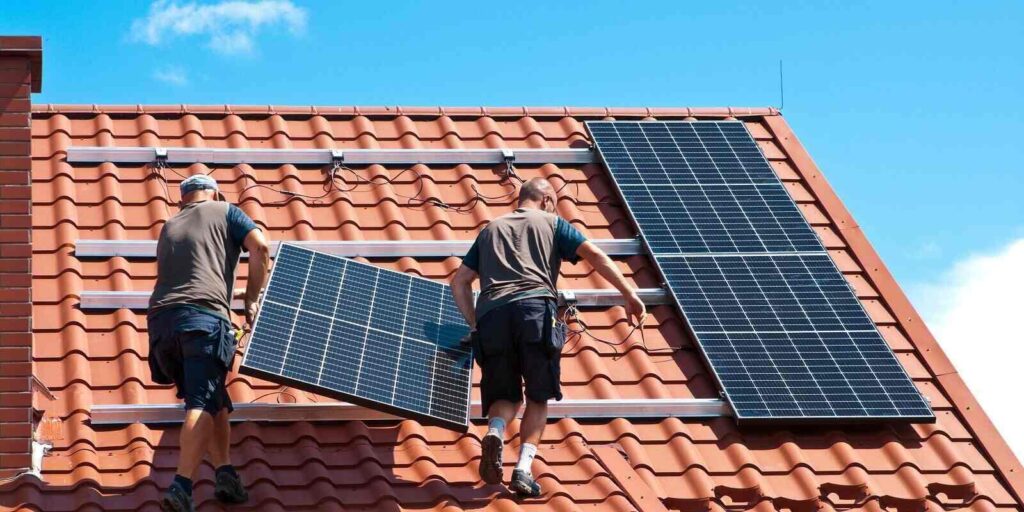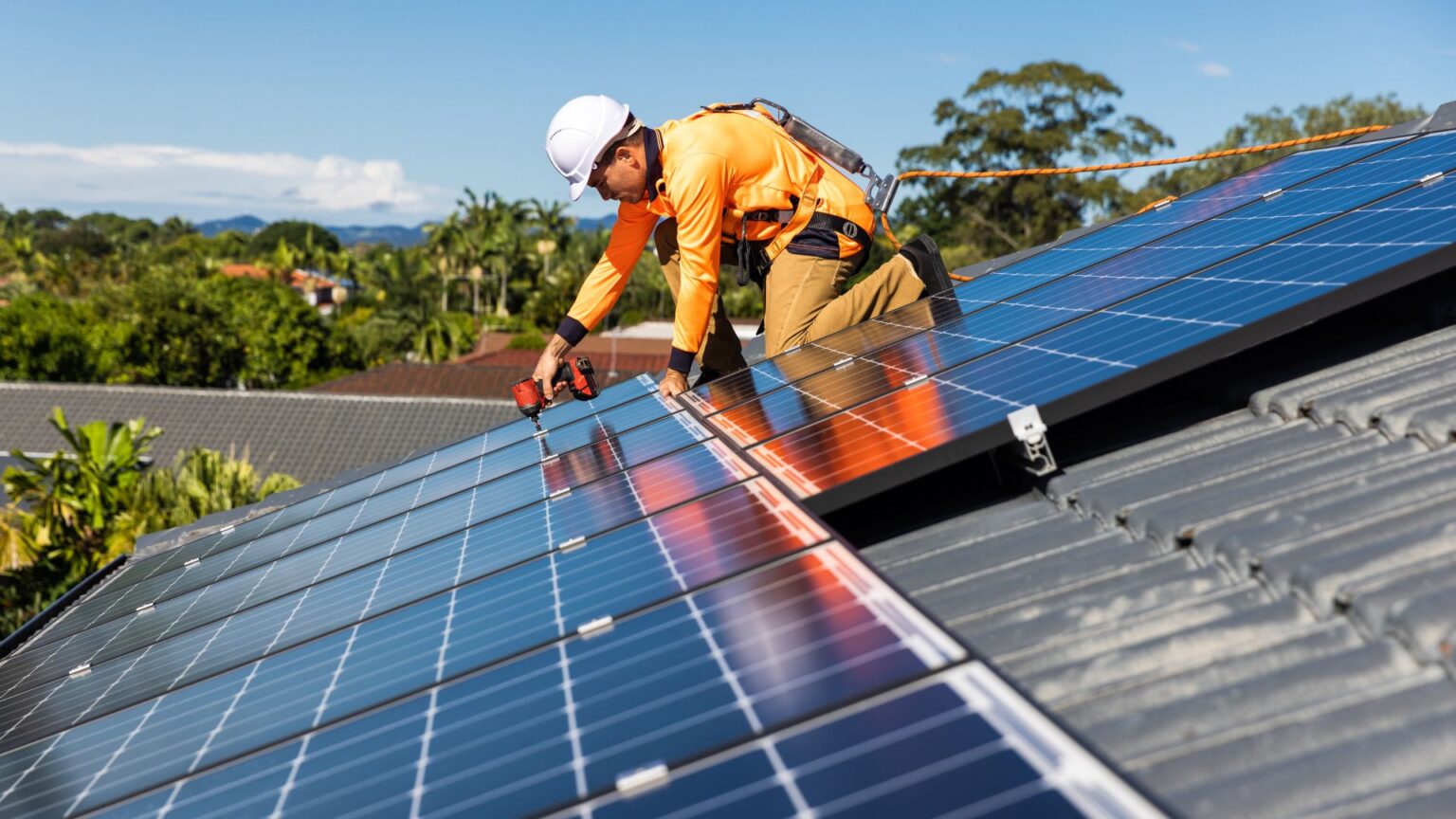Solar Photovoltaic Systems Explained: The Perfect Choice for Clean Energy in Your Company
Exactly How to Pick the Right Solar Power Setup for Your Energy Requirements
Picking a proper solar power installation needs a systematic strategy that starts with a clear understanding of your energy intake patterns and anticipated future needs. Aspects such as the kind of solar technology, setup prices, and readily available incentives play essential roles in making an informed decision - solar photovoltaic. The choice of a qualified installer can not be overlooked, as their expertise can considerably influence the efficiency and long life of your system. As you evaluate these factors to consider, you might locate that the ideal path is not constantly one of the most evident one.
Assess Your Power Demands
Examining your power needs is a vital initial action in the solar power installment procedure. Comprehending your present and future power consumption will assist the layout of an efficient solar system tailored to your demands.
Think about seasonal variants in energy consumption, as certain months might demand even more power because of home heating or cooling needs. Furthermore, assess any scheduled changes in lifestyle or home, such as the purchase of electric vehicles or home developments, which might enhance your power needs in the future.
When you have an extensive understanding of your power usage, you can identify the ideal solar capability needed to meet those requirements. This assessment not only aids in sizing the solar setup however also notifies decisions concerning power storage solutions and potential grid connection requirements. solar photovoltaic. Ultimately, precisely evaluating your energy requires guarantees that your solar power system operates effectively, delivering the advantages of renewable resource abreast with your intake patterns

Evaluate Solar Technology Options
When taking into consideration a solar power setup, it is important to assess the numerous solar technology alternatives available to make sure the system straightens with your energy demands and spending plan. The primary modern technologies include monocrystalline, polycrystalline, and thin-film photovoltaic panels, each offering distinct advantages and drawbacks.
Monocrystalline panels are known for their high efficiency and efficiency in minimal room, making them ideal for domestic installations with much less roofing location. Thin-film solar panels are light-weight and flexible, suitable for unique surfaces, however they normally have lower effectiveness and call for even more room to create the exact same power outcome.
Along with panel kinds, consider solar inverters, which convert the direct existing produced by the panels into alternating current for home use. String inverters, microinverters, and power optimizers each have special advantages that can affect system efficiency. Assessing these options will assist you make an informed choice that satisfies your energy demands properly.
Take Into Consideration Installation Expenses
Understanding installation costs is crucial for any person thinking about a solar energy system. These prices can differ significantly based on numerous aspects, consisting read what he said of system size, kind of panels, and setup complexity. A common property solar installation might range from $15,000 to $30,000 prior to rewards, which can be a considerable upfront financial investment.
To properly analyze installment costs, it is crucial to get comprehensive quotes from multiple solar companies. These quotes should damage down the prices of equipment, labor, allows, and any kind of extra devices needed for the installation. Pay very close attention to the quality of materials being used, as higher-quality panels and inverters can cause better effectiveness and long life, possibly offsetting higher first prices.
Moreover, consider the long-term effects of installation costs. A less expensive setup might conserve cash in advance yet can bring about greater maintenance costs or decreased energy manufacturing gradually. It is likewise a good idea to assess funding choices, such as solar car loans or leases, which can influence your general financial dedication.
Research Resident Rewards
Checking out neighborhood rewards can significantly affect the total cost of a solar energy installment. Numerous regions provide a selection of financial rewards aimed at promoting renewable resource usage, making solar energy more accessible and economical for property owners and businesses alike.
These motivations might consist of federal tax obligation credits, state discounts, and regional utility company programs that give money motivations or web metering alternatives. The Federal Financial Investment Tax Credit History (ITC) permits you to deduct a significant percentage of your solar installation costs from your federal tax obligations. State-specific incentives can additionally boost these cost savings, typically in the kind of direct money discounts or tax credit reports.
In addition, some city governments might offer real estate tax exemptions for solar setups, making certain that your investment does not enhance your real estate tax responsibility. Researching these incentives can uncover considerable cost savings, which can affect your choice on the size and type of solar system to install.

Select a Reliable Installer
Picking a credible installer is crucial to guaranteeing the success and durability of your solar power system. The setup procedure substantially impacts the performance and efficiency of your solar panels, making it crucial to pick a service provider with a tested performance history. Begin by looking useful site into neighborhood installers via on-line testimonials and endorsements. Sites such as the Bbb can give understanding right into client fulfillment and solution integrity.
Following, verify the installer's qualifications, including licenses, certifications, and insurance policy. A credible installer should hold qualifications from acknowledged organizations, such as the North American Board of Licensed Energy Specialists (NABCEP), showing a high level of expertise. Furthermore, ask about the installer's experience with similar jobs, especially in your location, as neighborhood climate and laws can influence installment techniques.
Demand multiple quotes and contrast them not just on cost yet also on the high quality of equipment and service warranties offered. A credible installer needs to offer clear details about their products and solutions, helping you helpful resources make a notified choice. By spending time in selecting a credible installer, you will certainly boost the overall efficiency and longevity of your solar power system.
Verdict
In final thought, picking the appropriate solar power installation requires a detailed assessment of energy requirements, an understanding of offered solar innovations, and a cautious factor to consider of installment costs. Exploring neighborhood incentives can enhance financial benefits, while choosing a reliable installer makes certain high quality craftsmanship and dependability. solar photovoltaic. By systematically examining these aspects, people can accomplish an ideal solar service that satisfies both current and future energy needs, inevitably adding to sustainable power methods and expense savings over time